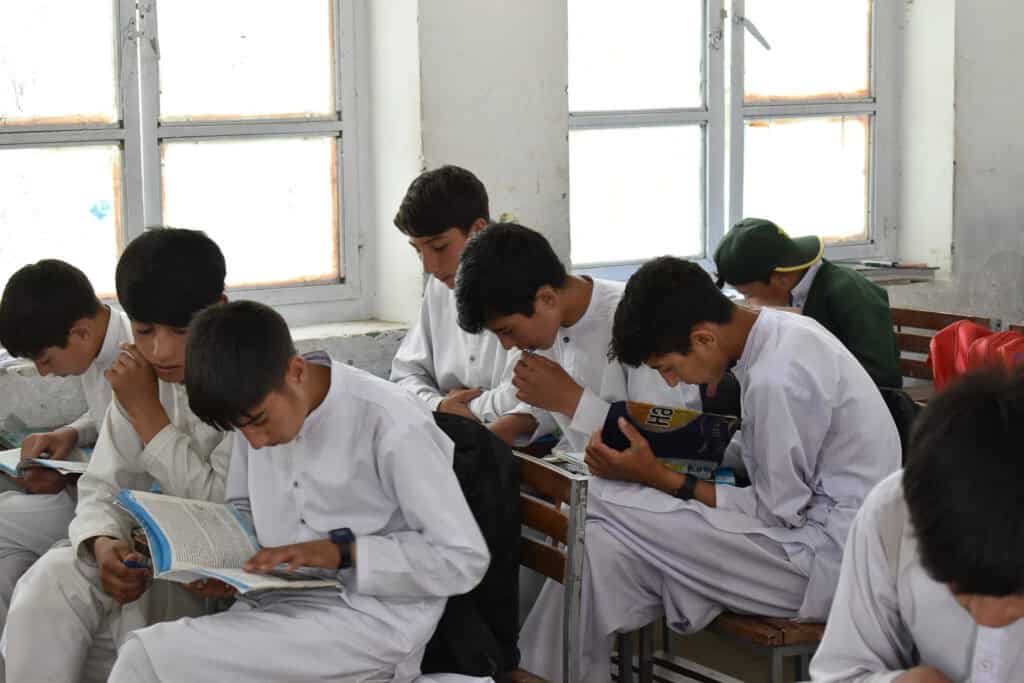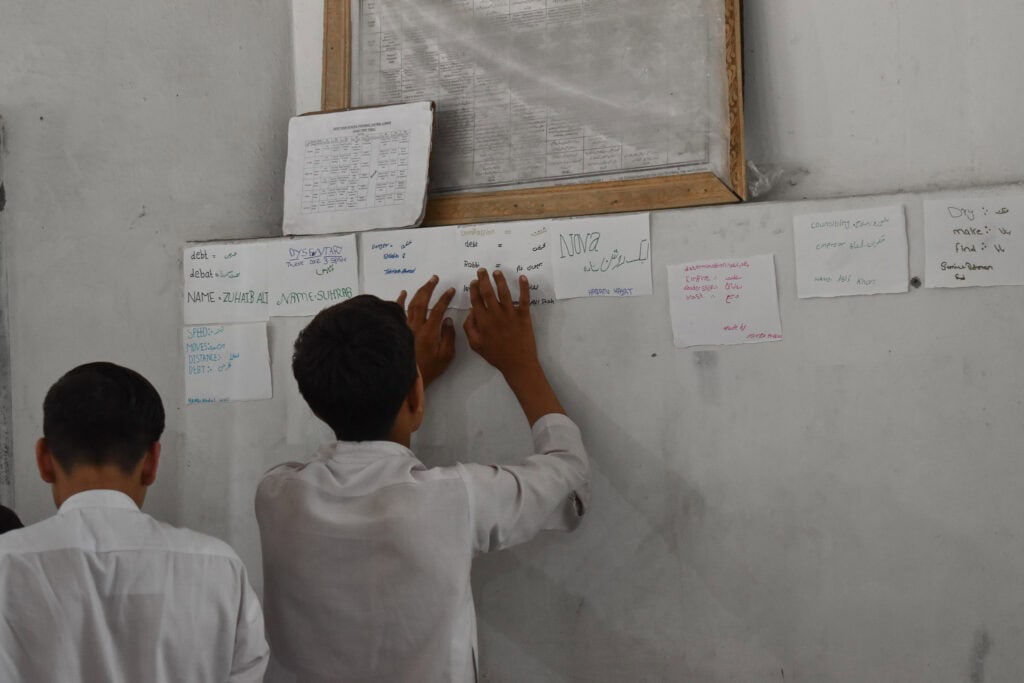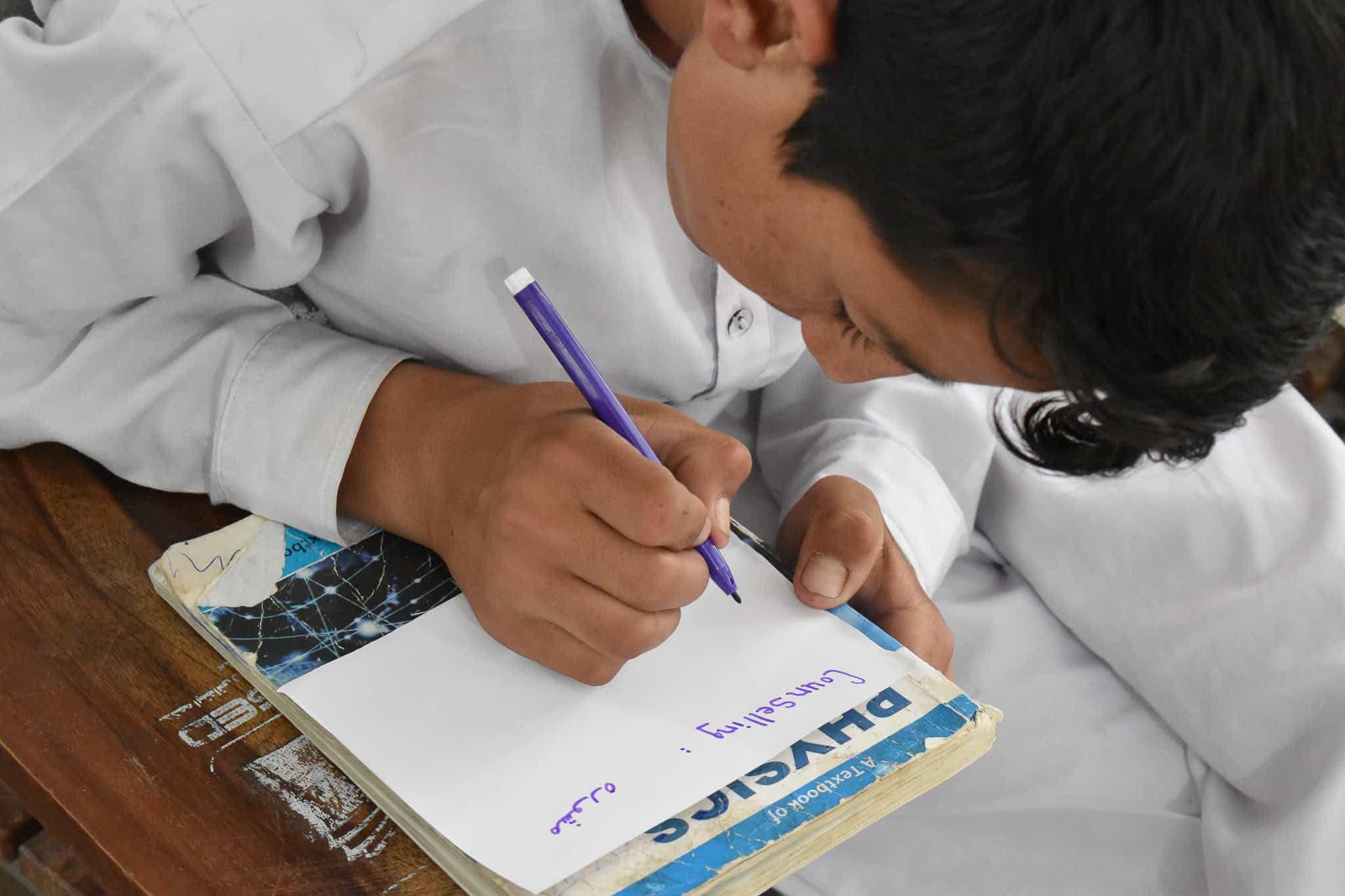Haji Muhammad is a soft-spoken yet passionate educator working at Government High School (GHS) Parabek Chitral Pakistan, nestled in the heart of Parabek Valley. The school is surrounded by stunning hilly terrain and uniquely positioned: close to community institutions like the Aga Khan Health Center and the Ismaili Local Council, just 500 meters from the Parabek Hydel Power Station, and not far from the Pakistan-Afghanistan border.
With 13 years of teaching experience behind him, Haji Muhammad isn’t just delivering lessons, he is transforming lives.
“I’ve always believed that education is more than just books and grades, it’s about unlocking potential.”

But despite the peaceful setting, Haji Muhammad faced a real educational challenge. “By assessing the students using the assessment tools provided by Schools2030, through classroom observations and interviews with students and teachers, I noticed something deeply concerning, most of our Grade 10 students were struggling to read English texts fluently. They were unable to comprehend what they were reading, and it was affecting their confidence and performance,” he explained.
After attending a Human Centred Design (HCD) workshop, he created a simple intervention in hopes of tackling the learning challenge; he named it ‘DEAR’ – ‘Drop Everything and Read’.
“The idea was to build a culture of reading. For 20 minutes each day, everyone, students and teachers, would stop what they were doing and read an English text of their choice.”

Afterwards, each student would pick a new word, write it with its meaning on a card, and post it on a display board. It became interactive, fun, and surprisingly competitive,” he shared.
The display board came alive with colours and words, and every day, the “Word of the Day” was selected through a student voting process. By the end of the week, the student with the most featured words was celebrated as the “Winner of the Week.”

“It wasn’t just about vocabulary anymore. The students became genuinely excited about reading. Their confidence improved, and we observed a 10–15% improvement in comprehension in just a few weeks,” Haji Muhammad said.
But the journey didn’t stop there. As the students progressed, he identified another barrier, pronunciation and sound recognition.
“That’s when I developed the Phonics Booklet. It’s a simple guide to English phonics, designed to make sound recognition easier for students of all grades. Now, it’s part of our annual orientation. Every student, regardless of their level, gets to go through it,” he said, flipping through a well-used copy of the booklet.
This thoughtful intervention didn’t just boost literacy. It sparked something greater.
“I saw changes beyond reading. Students started showing stronger communication skills. They began working in teams, using ICT tools, and even showing leadership in class discussions. Their behaviour improved, they felt seen, heard, and empowered.”
Through Schools2030’s HCD approach, Haji Muhammad was able to co-create solutions with his students at the heart of every decision.
“What started as a reading activity became a platform for holistic growth. This experience reinforced my belief that meaningful change doesn’t always require big steps. Sometimes, small and thoughtful actions, when rooted in students’ real needs, can make a world of difference,” he said.
Thanks to Haji Muhammad’s dedication and the HCD approach, students at GHS Parabek are not only reading with greater fluency but also engaging with language in more confident, creative ways. His simple yet powerful solutions, from daily reading sessions to the phonics guide, have improved literacy, built students’ self-esteem, and created a more joyful learning environment. It’s a clear example of how a teacher-led innovation, rooted in real classroom needs, can unlock student potential and transform educational outcomes.
